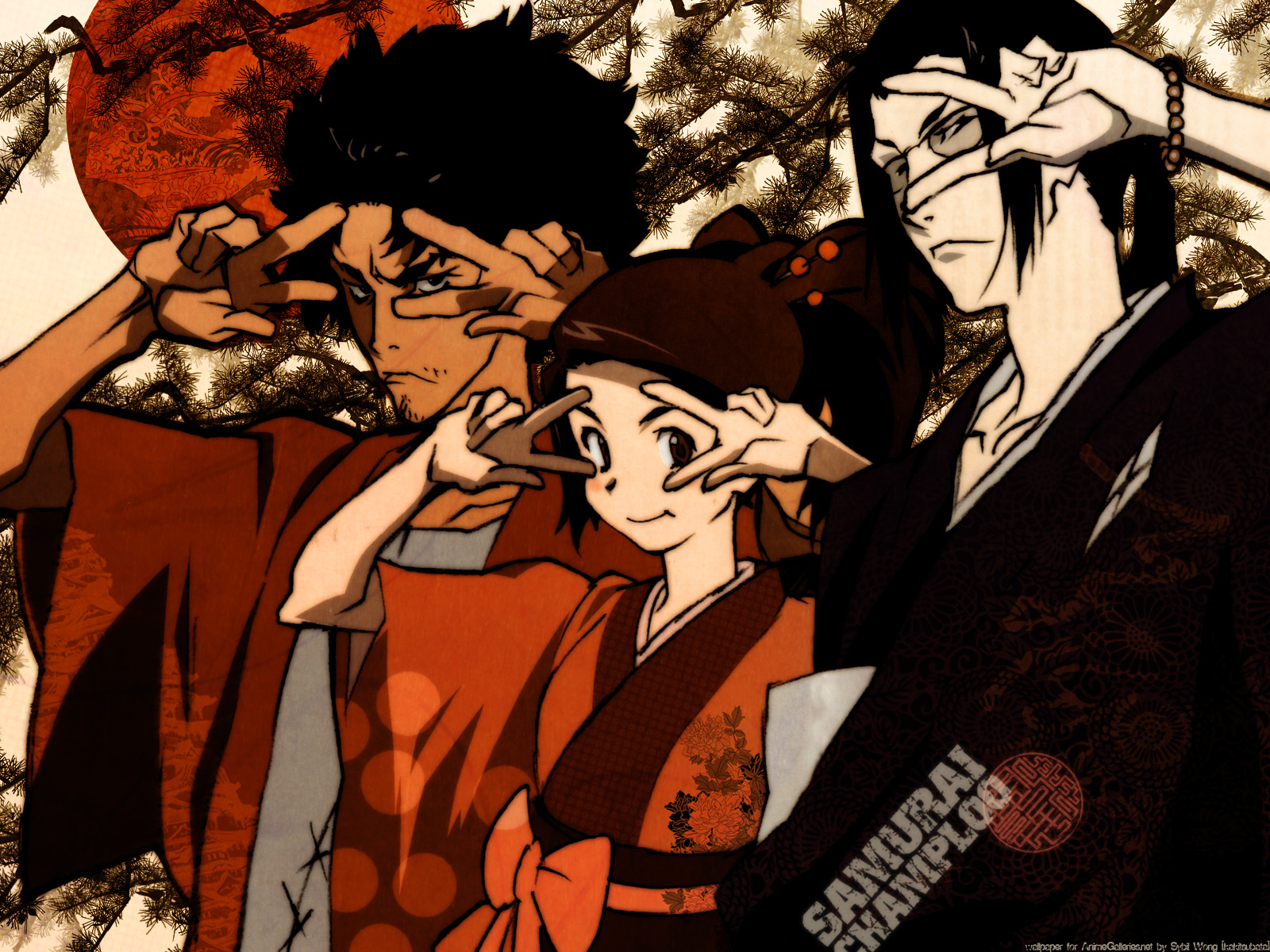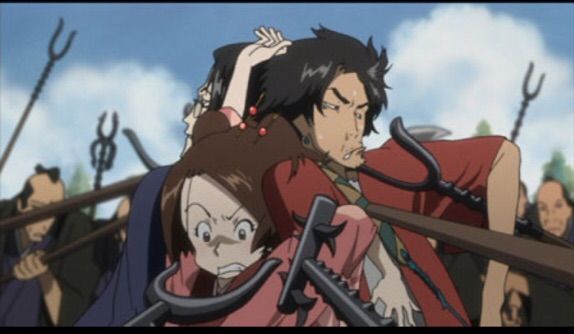Anime Review: Samurai Champloo
This was written for Maglomaniac, circa March 19, 2014

Cowboy Bebop can be considered one of the classics in the
world of anime. In fact, it’s oft
considered to be the best anime of all time.
But, one question that usually comes to mind when dealing with a show of
that caliber isn’t “How good is it?” The
question that comes to mind is, “What do you do for an encore?” Enter Shinichiro Watanabe’s follow-up of
sorts, Samurai Champloo.

Here’s a general synopsis of the 26-episode series, made
popular in America through its run on Adult Swim (wow, the symmetry to Bebop is
close, no?). The setting is the Edo
period of Japan. Samurai are starting to
be a thing of the past with the rise of the Tokugawa Shogunate. During this tumultuous time, three people
happen across each other with varying purposes in life. There’s Mugen, a rather tan, slovenly, crass,
and arrogant samurai who cares only about food, drink, pleasure, and
himself. There’s Jin, a somewhat pale,
quiet, reserved samurai who wears glasses and reserves his judgment, thoughts,
and whatnot unless needed. Then, we have
Fu, a rather spritely, bubbly, troublesome young female waitress who can be
more trouble than she’s worth but her heart is always in the right place. Oh, and there’s Momo, Fu’s pet flying
squirrel, who hides in the most suggestive of places. One day, these three just happened to
encounter each other, doing something they would be synonymous with throughout
most of the series: getting into plenty of trouble, at times with the law. As the show unfolds, we learn about their
pasts, their purposes, and their effects on each other with their
encounters. Once the past catches up
with them, they are forced to turn a dangerous corner with their very lives at
stake.
As mentioned in jest earlier, there are similarities between
this and Cowboy Bebop. However, the
differences are enough to make this series original as well as very
appealing. For starters, instead of a
bevy of musical styles utilized by Yoko Kanno, we have a distinct style of
Japanese hip hop, funk, dance, and the like, utilized during the series. Like Bebop, they all have problems standing
each other’s company and at times, go off on their own. Ultimately, they end up crossing paths again,
looking out for each other in the process.
However, instead of a weird partnership formed through bounty hunting,
it’s more like a dysfunctional family where Mugen and Jin are like older
brothers to Fu as they look after her on her journey. Instead of a more subdued feel that jazz
would supplement with action here and there, we have a more frenetic,
fast-paced, and action-heavy feel that’s sure to keep your blood pumping. There are episodes that slow the pace down
for a more serious feel, to be sure, but at a good balance with the show’s more
active feel.

Now, let’s make one thing clear: if you’re looking for
another Cowboy Bebop, right down to the letter, keep looking. It’s a different show, with some
similarities, that showcase the range of direction of Watanabe. That said, it’s definitely worth a
watch. Just as Bebop plays up the days of
the “Wild West” during the future, with a bevy of musical forms as a backdrop,
Champloo plays up Japan’s “Wild West” days of the samurai, with hip hop as a
backdrop. That’s probably the closest
you may get to the show being pretty similar to Bebop. Other than that, everything else that’s
brought to the table is enjoyable, like Bebop.
The stories are captivating; the characters are very entertaining, and
the general feel is worth writing home about.
You should definitely give this series a watch, as Watanabe gives us
another solid anime serial to enjoy.
Comments
Post a Comment